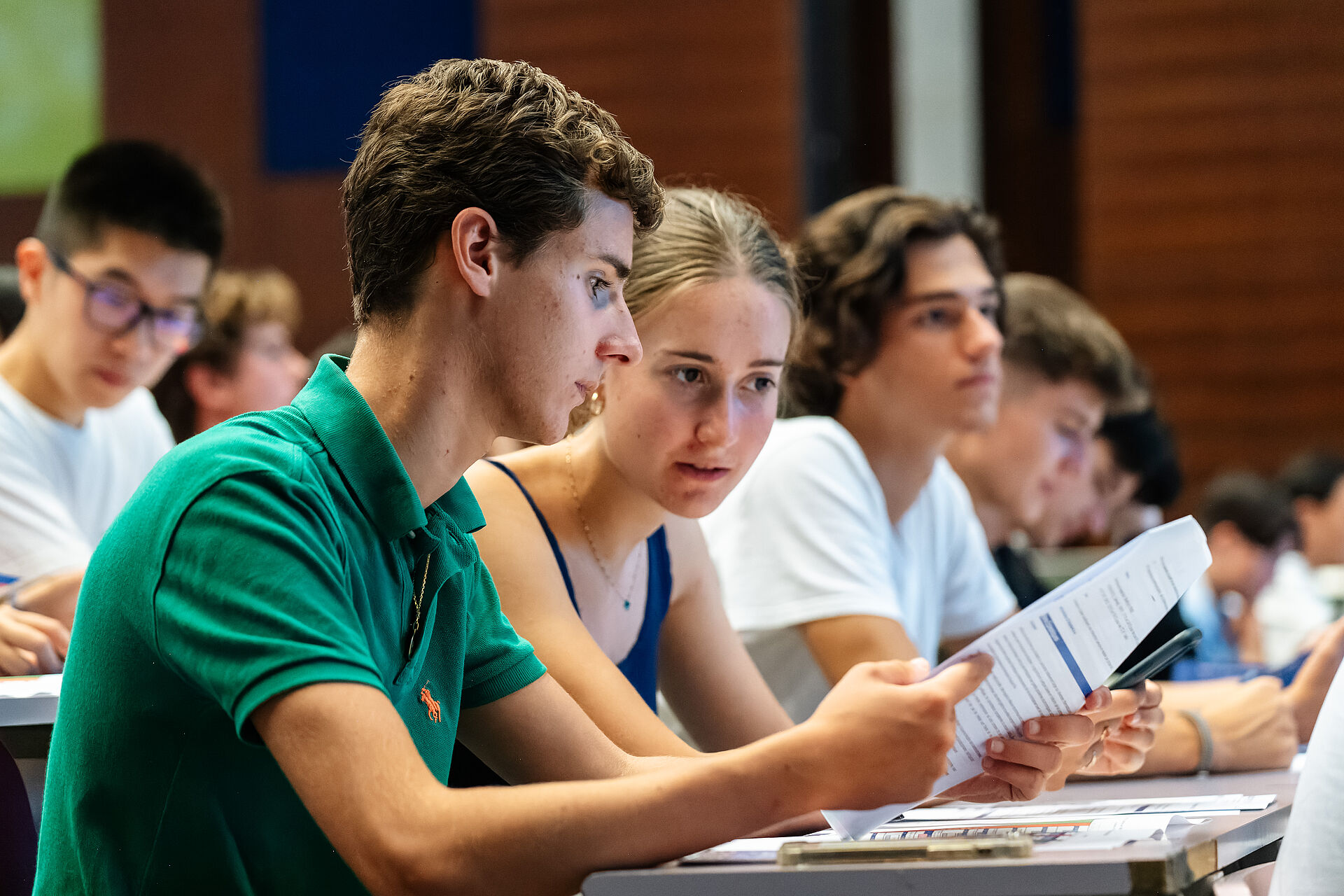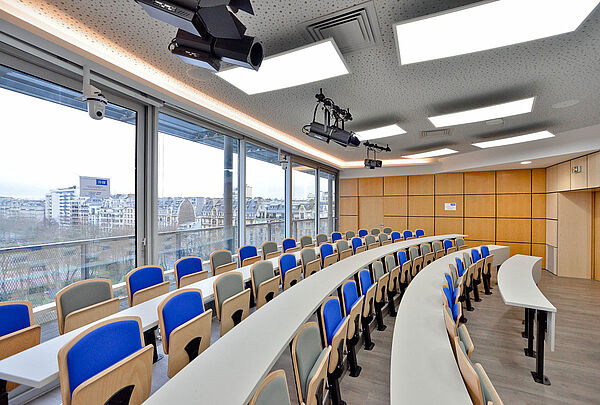Syllabus
- Les fondamentaux de l'audit et du conseil
Les fondamentaux de l'audit et du conseil
Ects : 6
Lecturer :
- GINA GULLA MENEZ
Total hours : 36
- Gouvernance des données et audit de la sécurité
Gouvernance des données et audit de la sécurité
Ects : 6
Total hours : 36
- Gestion de projet
Gestion de projet
Ects : 6
Total hours : 36
- Processus métiers
Processus métiers
- Sécurité des SI et Risque Cyber
Sécurité des SI et Risque Cyber
- Soft skills : externalisation et contractualisation
Soft skills : externalisation et contractualisation
- Soft skills : décarbonation
Soft skills : décarbonation
- Soft skills : posture de l'auditeur et du consultant
Soft skills : posture de l'auditeur et du consultant
- Audit des applications
Audit des applications
Ects : 3
Lecturer :
- DANIIL RYBAEV
Total hours : 36
- Soft skills : aide aux outils
Soft skills : aide aux outils
Total hours : 18
- Stratégie de choix et implémentation des progiciels
Stratégie de choix et implémentation des progiciels
- Sécurité web et réseau
Sécurité web et réseau
Ects : 6
Lecturer :
- ROLAND INAN
Total hours : 36
- Infrastructure multi-cloud et sécurité
Infrastructure multi-cloud et sécurité
Ects : 3
Total hours : 18
- Soft skills : l'agilité des acteurs
Soft skills : l'agilité des acteurs
Total hours : 18
- Infrastructure technique, plateforme et IA
Infrastructure technique, plateforme et IA
- Conduite de projet agile
Conduite de projet agile
Ects : 3
Total hours : 18
- Méthodologie de la recherche
Méthodologie de la recherche
- Voyages d’étude
Voyages d’étude
Lecturer :
- Mémoire soutenance
Mémoire soutenance
Academic Training Year 2025 - 2026 - subject to modification
Teaching Modalities
The Master's program consists of 450 hours of tuition from September to July. The Program is based on a combination of theoretical instruction, professionalization and practical application. Several modules are delivered in English to prepare students for international careers.
The pedagogical organization is based on five complementary dimensions:
- Fundamental courses in auditing, Information Systems governance and management, and cybersecurity.
- Progressive professionalization through hands-on training and soft skills.
- Concrete case studies and role-playing.
- A critical and multidisciplinary reflection on Information Systems audit and management practices, taking into account emerging regulatory and technological issues.
- In-company assignments, with a high degree of professional immersion thanks to the alternating work-study program.
The program is organized into two semesters. Each semester comprises a set of compulsory courses.
The work-study schedule enables students to apply the knowledge they have acquired in the workplace immediately:
- September: courses on campus
- October to December: three days at the workplace; two days on campus
- January to March: full-time in the workplace
- April to May: three days at the workplace; two days on campus
- July to September: full-time at the workplace
Internships and Supervised Projects
The year closes with a research paper, enabling students to delve deeper into an auditing or Information Systems governance/management issues. At the same time, students are required to take part in a collective career plan, "Master’s Engagement Initiative", aimed at promoting the Program and strengthening its ecosystem. These projects can take various forms, such as developing the alumni network (organizing events, creating a directory or a dedicated application), improving the Master's digital communication, collaborating with Dauphine Junior Conseil, launching a marketing campaign, or organizing a conference on AI auditing.
International openness is a key feature of the year, and is supported by the class’s corporate mentor or sponsor. It is based on a case study on which students work before presenting their work in English. Each year, the themes of the program evolve in line with the teaching and emerging technologies.
Research-driven Programs
Training courses are developed in close collaboration with Dauphine's world-class research programs, which ensure high standards and innovation.
Research is organized around 6 disciplines all centered on the sciences of organizations and decision making.
Learn more about research at Dauphine


